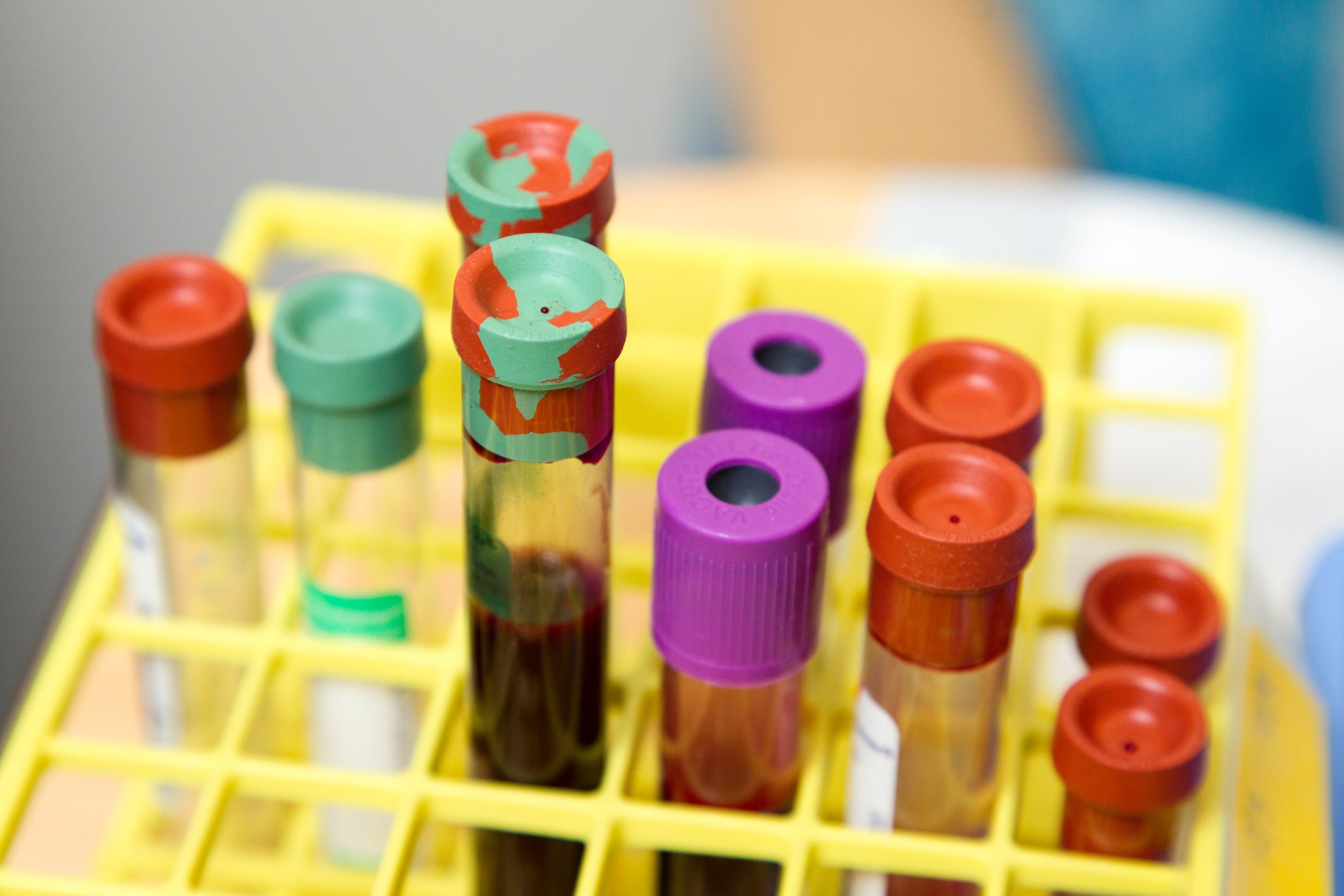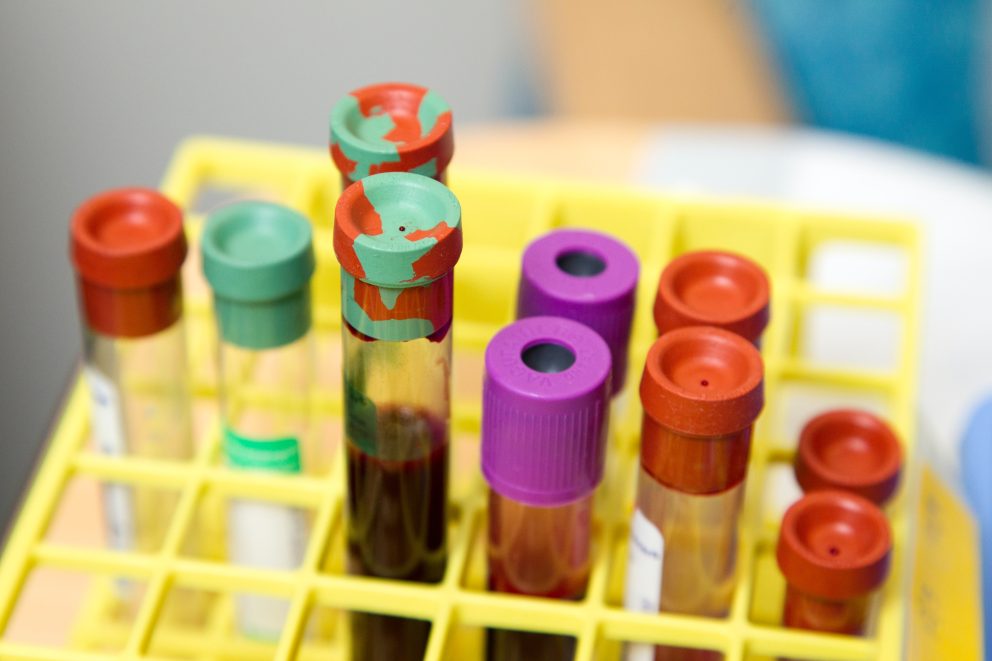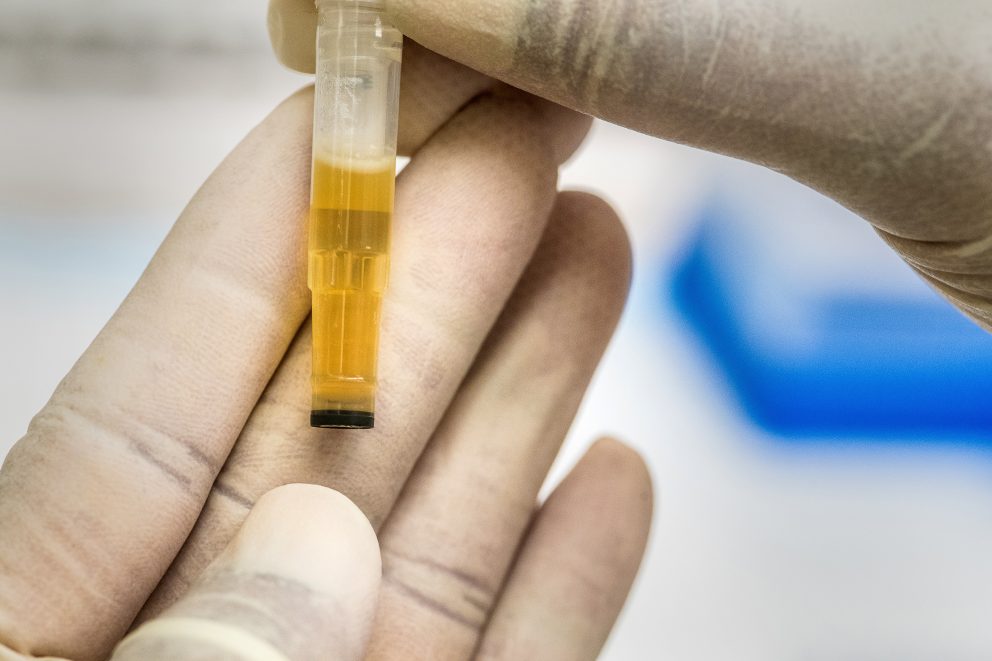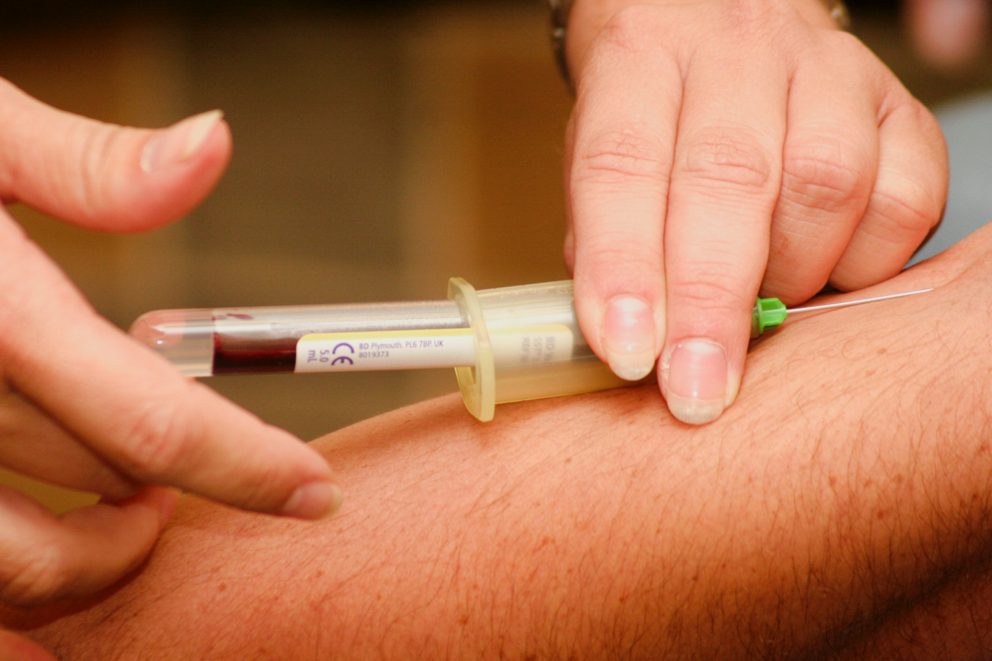
How Long Does Weed Stay in Your System? Information on How Long Marijuana Stays in Urine, Blood, Hair & More

Photo by National Cancer Institute on Unsplash
Cannabis legalization for medical and recreational use is expanding across the country. However, some employers still reserve their right to test you for cannabis use. They’re within the letter of the law because cannabis use is still illegal on the federal level and depending on your hiring agreement or terms of employment you may have consented to testing.
Whether you’re dosing for your health or had an amazing vacation in California or Colorado then went back to a state where cannabis is not legal, it’s good to understand how drug tests can detect even the most minimal cannabis use.
You may worry how long does weed stay in your system? How long does marijuana stay in your urine? Or in some extreme cases how long will THC last in your hair? Drug testing doesn’t screen for the legal or illegal use of cannabis, it only tests for compounds like THC.
This can get complicated because there are legal versions of THC like delta-8, delta-10 and Dronabinol a.k.a. Marinol. These can all potentially trigger a positive result. The ramifications of a positive drug test can negatively impact your life by putting your health insurance, livelihood or career at risk.
Understanding how drug tests work can help you protect yourself and accurately communicate with your employer. This article will cover how long THC can traditionally stay in your system, what gets tested, and will help you better understand how your body metabolizes THC.
How Do Drug Tests Work?
Drug tests traditionally take a sample of your body fluids like saliva, blood, urine, or even a follicle of your hair to test for the byproducts of certain drugs. When someone uses a substance, depending on how it is metabolized, it will leave behind certain remnants or byproducts.
Tests confirm if there are trace amounts of the drug or the byproducts your body makes after consuming them. Your body can convert certain substances into different forms while metabolizing them. Presence of this substance serves as confirmation someone has used a certain drug.
Drug tests are imperfect and these byproducts can be created by legal substances like over the counter medications. For example, ibuprofen and hemp-based food products like hemp seeds run the risk of triggering a false positive for cannabis use.
With cannabis, drug tests test for THC or metabolites like 11-nor-delta-9-tetrahydrocannabinol-9-carboxylic acid (9-carboxy-THC). When your body consumes THC it can be converted into different forms in your body as it is processed by your liver.
The laws regarding cannabis have changed in recent years. What separates cannabis from hemp, from a legal standpoint, is that any plant from the cannabis family that has less than .3% THC is considered hemp and legal.
The 2018 Farm Bill legalized the use of hemp which has helped drive the popularity of CBD and the creation of not-quite-THC products like delta-8, delta-10, and HHC. These products, while legal, could trigger a positive result as they can create the same byproducts or leave trace amounts of THC in your bloodstream.
The pressure for someone taking a drug test is has your body thoroughly metabolized the THC and byproducts. If not, you can trigger a positive result.

How Long Does Weed Stay In Your Body?
There is no clear cut answer for how long THC or its byproducts will remain in your body. Cannabis use can be detected anywhere from three to 90 days depending on the type of test.
There are a few different biological factors that will influence how long THC and other byproducts will remain in your system. These can be factors related to how you consume THC or about your body itself.
This article will offer estimates for various tests but the following factors can impact these estimates and potentially increase the length of time THC and its metabolites remain in your system.
How Does Weed Influence Drug Test Results?
The dosage of THC you take, the delivery method (smoking weed vs. edibles vs. concentrates), and the frequency with which you use cannabis can all influence how long THC and other cannabinoids can remain in your body.
For example, if someone is a daily cannabis user who consumes a high-dose edible they could be much more likely to trigger a positive drug test after some of these estimates compared to someone who takes a couple hits off of a joint once. This person may fully metabolize it much faster since they so infrequently consume THC.
Smoking tends to metabolize faster than edibles. However, dabbing and concentrates can expose you to higher amounts of THC which can increase the window that THC can be detected in your system. Plus, frequent cannabis use means there’s simply more THC and metabolites in your system to be found by these tests.
Your strain can even dictate how your cannabis use is detected. Strains higher in CBD can tend to decrease the amount of THC detected in your system vs. more full THC strains.
In this article, we’ll offer three estimates for drug detection windows. These will be casual, frequent, and heavy users. Casual users use cannabis less than twice a week. Frequent users use cannabis multiple times a week. Heavy users use cannabis daily or multiple times per day.
Heavy use of cannabis can mean in some cases you can trigger a positive result even after abstaining for a week. We’ll review all the ways that cannabis can be detected.
Taking tolerance breaks can help decrease the amount of THC and other cannabinoids and metabolites in your system which can help shrink some of these detection windows. Not to mention, t-breaks can help decrease the amount of THC you need to feel high and increase your endocannabinoid receptors which can diminish from heavy cannabis use.
Apply for a Medical Marijuana Card Online Today
Join over 100,000 patients who have chosen Green Health Docs as their medical cannabis doctors. We have a 99% approval rate and offer a 100% money back guarantee!
How Does Your Body Influence Drug Test Results?
In addition to how you consume cannabis there are certain biological factors that can also influence how long cannabis remains in your body. Your age, weight, percentage of body fat, metabolism, physical activity and genetics can all impact how long cannabis compounds remain in your body.
As a cannabinoid, THC is fat-soluble so if you’re a heavy cannabis user with a greater amount of body fat trace amounts of THC and other metabolites can linger in your body. THC can attach to body fat which means you can run the risk of triggering a positive result well after you’ve used cannabis.
As your body processes some of this old fat it can release THC into your body. This may not be enough to make you feel high but it can mean there are enough trace amounts of cannabinoids to show up in a urine test.
Physical activity and metabolism can help decrease drug detection windows. More activity and increased metabolism times can mean your body fully processes and excretes cannabinoids from your body. 65% of cannabis is excreted from the body in bowel movements.
Genetics can even affect your test as some people can have subtle variants in certain enzymes that eliminate THC that can shrink these detection windows.
How Long Does THC Stay In Blood?
Blood tests can have the smallest window of most common drug tests. Blood tests also are likely more expensive and challenging to administer in a work setting. This can mean you’re less likely to find yourself facing a blood test.
That being said, THC can peak in your bloodstream within the first few minutes of smoking weed and decline within an hour. With edibles, THC can peak at around 3 hours after eating your edible.
The general window for cannabinoid detection in your bloodstream is:
- Casual users: 1-2 days
- Frequent users: 1-2 days
- Heavy users: up to 7 days
One study did find that some heavier cannabis users triggered a positive result in a blood test even after abstaining for 7 days. In general, heavy cannabis users should be concerned about these windows potentially being greater depending on your exposure to THC.
Can Weed Be Detected In A Regular Blood Test?
Standard blood work at your doctor’s office tests for certain levels of different compounds. This can be glucose, cholesterol, certain hormones or white blood cells or the detection of certain bacteria or viruses.
Blood tests are specialized. Given the short window of detection and cost it’s not likely that your doctor would test for THC for no reason. Cannabis use cannot be detected in a standard blood test your doctor would use. It requires a specific blood test that can be on the costlier side. Plus, a doctor would require your consent to administer a THC test.

Photo by Hush Naidoo Jade Photography on Unsplash
How Long Does Weed Stay In Your Saliva?
Saliva tests can tend to be more common. These can be used in workplaces or used by police in roadside tests to confirm cannabis use. The area between your cheek and gums is swabbed to test for any cannabinoid metabolites that may be present in your oral fluid.
While a smaller window, saliva tests are used to detect active cannabis use and can confirm if you’ve used cannabis recently. The window based on your general cannabis usage is:
- Casual users: 24 hours
- Frequent users: 30 hours
- Heavy users: 72 hours
This may not be an issue in a work setting but can be problematic at a sobriety checkpoint. As cannabis becomes more common, driving while under the influence of cannabis will become a larger issue so saliva tests may be more common.
How Long Does Marijuana Stay In Urine?
Urine tests can tend to be the most common drug testing method. They are the most affordable and tend to have a longer window of detection. Based on your cannabis usage the windows of urine tests are:
- Casual users: 1-3 days
- Frequent users: 7-21 days
- Heavy users: 30+ days
It’s worth noting that if you are a heavy user and only use cannabis once a day your window may be smaller than 30 days and only 10-15 days. However, these are all estimates and different factors may increase or decrease these detection windows.
How Long Does Weed Stay In Hair Follicles?
You may have never even thought to ask yourself, “How long will THC stay in your hair?” Hair follicle tests do have the longest windows for detection of drug use and that can expose an employer to anything you’ve done in three months.
The detection period for even the most infrequent users of cannabis, and even some people exposed to second-hand smoke is 90 days.
A 1.5 inch sample of hair is cut at the scalp to detect cannabis exposure. Since hair grows about 0.5 inches per month, a 1.5-inch hair segment would provide a window of weed use for the past 3 months.
It’s also important to know that 15% of drug tests results from hair follicle tests can be inaccurate. Also, different factors can affect hair follicle tests. Hair color or different treatments can strip some of the content of hair leading to inconclusive or false negative results.
Drug metabolites can attach to melanin so people with darker hair colors can be more likely to test positive as they have more metabolites or cannabinoids in their hair.
Hair growth rates can also affect your testing window. If your hair grows faster you could be facing a different time period of detection.
Additionally, heavy users can take longer to report a negative result because of the way our hair grows. So even if you’ve abstained for a long period of time there may still be trace byproducts in your hair.
Final Thoughts
It’s important to know your rights with regards to drug tests and what your employers can do with the information they obtain. You can check out the ACLU’s list of drug testing laws by state to confirm your rights in your area.
Not only will this help you be more aware of if you can be drug tested you will also know what your recourse is if you do trigger a positive result.Knowing your rights is key.
Drug testing is a natural part of society. It’s often used to vet government employees and to ensure public safety in certain industries. While the stigma of cannabis use is slowly fading away, it’s important to know how drug testing works and how cannabis use might be detected.
This can help you better discuss the realities of your cannabis use, whether for medical or recreational purposes, with a potential or present employer.
While estimates hopefully these windows can help you better prepare yourself for the realities of what a drug test might detect.
It’s key to remember that heavy cannabis use can increase your chances of a positive result no matter what recourse you take.
One way to help protect yourself is to apply for your medical marijuana card to ensure that your cannabis use is documented as medical and share that with your employer.
 This article has been reviewed by Dr. Anand Dugar, an anesthesiologist, pain medicine physician and the founder of Green Health Docs. Graduating from medical school in 2004 and residency in 2008, Dr. Dugar has been a licensed physician for almost 20 years and has been leading the push for medical cannabis nationwide.
This article has been reviewed by Dr. Anand Dugar, an anesthesiologist, pain medicine physician and the founder of Green Health Docs. Graduating from medical school in 2004 and residency in 2008, Dr. Dugar has been a licensed physician for almost 20 years and has been leading the push for medical cannabis nationwide.
